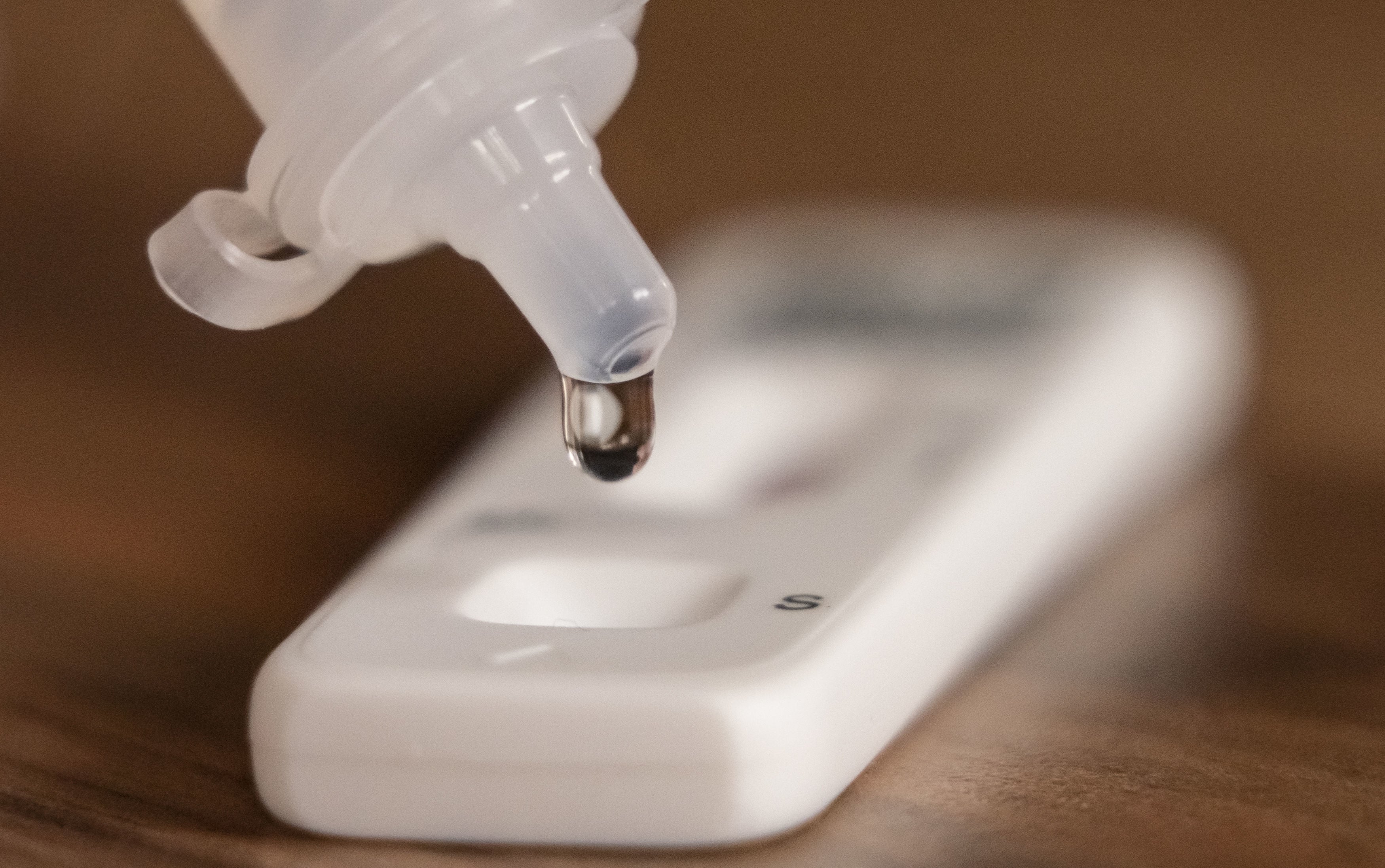The end of free Covid testing will just make us poorer and sicker
Health is a long game, and in the UK we have failed to play that long game for decades


April is often the season of new beginnings. But this year, it also marks the end of most remaining Covid restrictions in the UK; most notably free Covid testing, which ends today, 1 April, in England – followed by Northern Ireland, Scotland and Wales.
While some are seeing this as the next, positive phase in living with Covid, we should not be celebrating it as a movement towards “normal” life. Unless, of course, inequality in access to healthcare services and good health is a normality we want to return to as a country.
Judging by the government’s insistence on removing all measures to prevent infection and disease, a return to rising health inequalities across the country appears to be a vital part of their Living with Covid plan. In which case, I believe that today also marks the return to the pre-pandemic status quo of caring little about the health of the nation.
It seems no coincidence that just when people need more help and support than ever with the cost of living, the government removes yet another free healthcare product necessary to keep healthy.
That Covid tests were free – and now they are not – is an important point that on the surface seems to be about saving a bit of dosh for the country, but in fact will cost us dearly in the long run. We were not a healthy nation going into the pandemic. We are (unsurprisingly) a sicker nation two years on.
Health is a long game, and in the UK we have failed to play that long game for decades. Successive governments have settled for a hope-for-the-best, firefighting approach to the worst disasters, all while promoting the message that health is your own problem.
Why does it matter how the government values health?
Well, it matters because people are about to get a lot poorer in this country. On a population level, sick people, especially chronically sick people, are expensive. They cost us in real pounds for their care in the NHS, but also the money lost to the economic growth of the country, because they cannot contribute in the ways they would like – sometimes not at all. It is absurd that such a simple and well recognised relationship has gone ignored in the Living with Covid plan.
The rise of inflation, soaring energy prices and the economic downturn are especially relevant to understanding health on an individual level, where the relationship between health and wealth is even starker.
It is easier, for example – regardless of whether it is a pay-per-service system like America, or a free-to-all system like the NHS – to stay healthy if you have more money to put towards the goal of good health. Poorer, more deprived neighbourhoods are usually the sickest.
Deprivation means people live in poorly insulated, damp and cold housing. It means they buy the food they can afford, not the food that will keep them healthy. It means they don’t have access to safe spaces for exercise and sports. And, perversely, deprived areas are almost always lacking in enough, if any, health and social care services that their residents need to prevent ill health and to promote good health.
In fact, this is such a well-recognised phenomenon, that it has a name in my field of sociology: it is called the “inverse care law”. Instead of the most in-need neighbourhoods getting resources, the cup of rich, more affluent neighbourhoods runneth over with health and social care services, easily accessible to their local population.
Meanwhile, in lower-income neighbourhoods, services like GP surgeries and children centres are scarce and often in difficult to access locations for a population unlikely to have regular access to private or public transport. As a result, if you’re poor and sick, over time you just get sicker through little fault of your own.
The end of free Covid testing perfectly illustrates the relationship between health and wealth using a simple example. Lateral flow tests, the lifeline for so many people in ensuring they do not infect others, will now become a paid-for product only available to those who can afford the luxury of a test.
It will join the ranks of flu shots, over the counter medication, and other “optional” extras that only certain groups in our society can afford. There are serious repercussions to this decision for our (growing) deprived populations. It means they will likely not be able to protect those they live and work with from infection.
To keep up to speed with all the latest opinions and comment sign up to our free weekly Voices Dispatches newsletter by clicking here
Time off for sickness due to Covid will become a thing of the past, forcing a sick, infectious workforce to work through illness. Without free testing it will become impossible for those with long Covid and associated chronic conditions to prove that Covid was the culprit, making it more difficult, if not impossible, to access specific support for those conditions.
Far from marking a new, freer season in pandemic life, the decision to remove free testing from almost the whole UK population is in fact yet another nail in the coffin that is health inequality in this country.
Even after reports like Build Back Fairer have outlined just how poor the health of the nation is after Covid, it seems health continues to be viewed as a personal responsibility of which the government is keen to wash its hands.
Instead, the more money you have, the easier it will be to know if you’re healthy, to stay healthy and to keep those around you healthy. The rest, those who are already choosing between heating and eating, well, they’ll just have to hope for the best.
Join our commenting forum
Join thought-provoking conversations, follow other Independent readers and see their replies
Comments
Bookmark popover
Removed from bookmarks